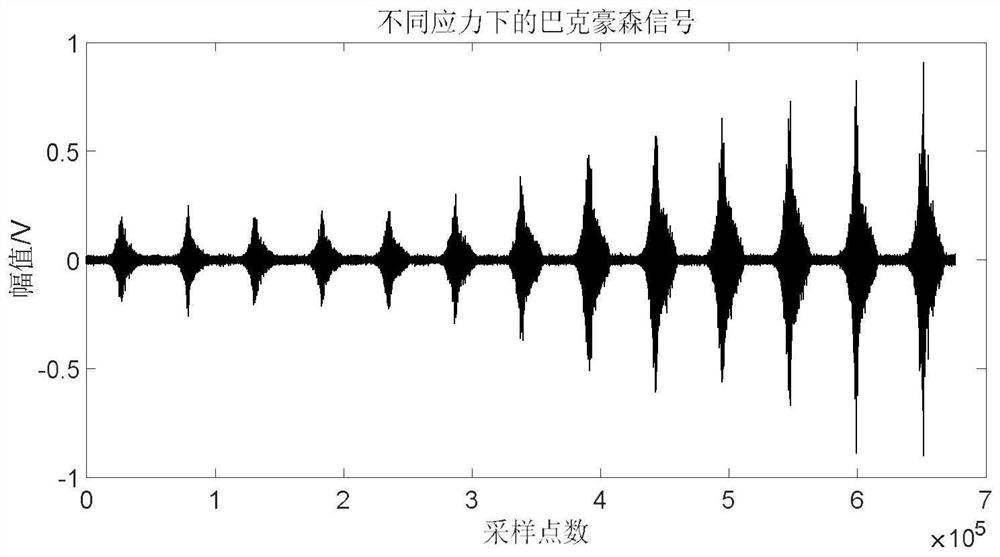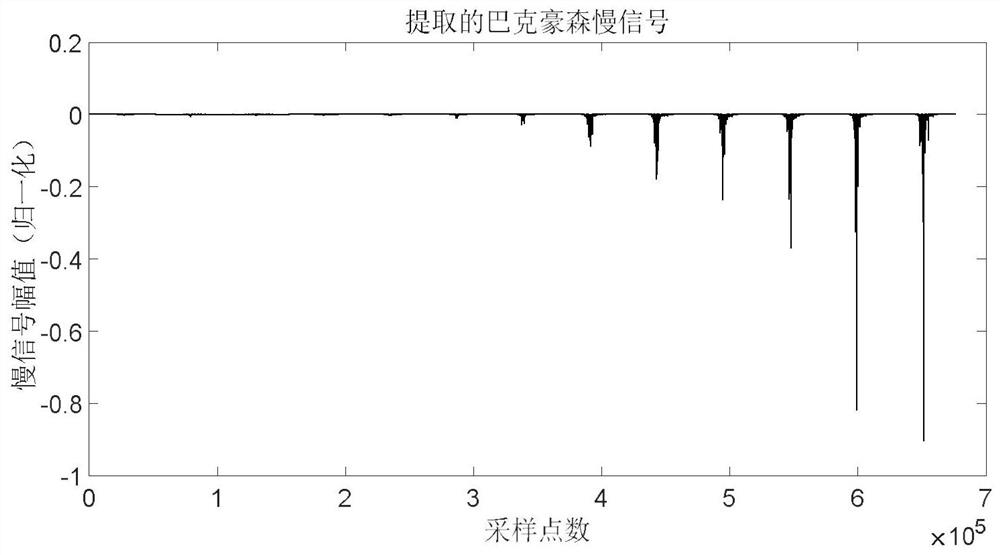A Stress Estimation Method for Barkhausen Signals Based on Slow Eigen Analysis
A slow feature and signal technology, applied in special data processing applications, design optimization/simulation, instruments, etc., can solve problems such as high dispersion and poor linearity, and achieve low dispersion, accurate models, and good linearity.
- Summary
- Abstract
- Description
- Claims
- Application Information
AI Technical Summary
Problems solved by technology
Method used
Image
Examples
Embodiment Construction
[0021] Below in conjunction with specific embodiment, further illustrate the present invention, should be understood that these embodiments are only used to illustrate the present invention and are not intended to limit the scope of the present invention, after having read the present invention, those skilled in the art will understand various equivalent forms of the present invention All modifications fall within the scope defined by the appended claims of the present application.
[0022] Such as figure 1 As shown, the Barkhausen signal stress estimation method based on slow feature analysis includes the following steps:
[0023] Step 1: Convert the Barkhausen signal MBN under different stresses i ,i=1,2,...,n form a column vector. The result is as figure 2 shown.
[0024] MBN=[MBN 1 ,MBN 2 ,...,MBN n ] T (1)
[0025] Step 2: Perform slow feature analysis on the combined Barkhausen signal to obtain the Barkhausen slow signal. The result is as image 3 shown.
...
PUM
 Login to View More
Login to View More Abstract
Description
Claims
Application Information
 Login to View More
Login to View More - R&D
- Intellectual Property
- Life Sciences
- Materials
- Tech Scout
- Unparalleled Data Quality
- Higher Quality Content
- 60% Fewer Hallucinations
Browse by: Latest US Patents, China's latest patents, Technical Efficacy Thesaurus, Application Domain, Technology Topic, Popular Technical Reports.
© 2025 PatSnap. All rights reserved.Legal|Privacy policy|Modern Slavery Act Transparency Statement|Sitemap|About US| Contact US: help@patsnap.com



